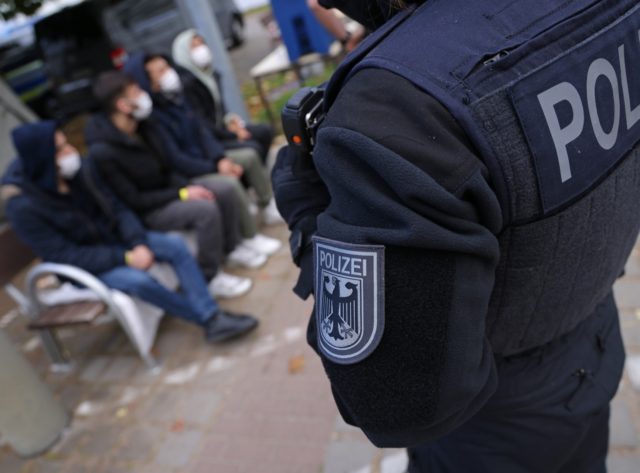BERLIN (AP) – German authorities said Wednesday that the number of migrants arriving in the country via Poland and Belarus has gone up in recent months.
German federal police said more than 4,300 people illegally crossed the border from Poland this year, with most of the migrants coming from Iraq, Syria, Yemen and Iran, German news agency dpa reported.
While from January to July only 26 people travelling by the “Belarus route” were registered, 474 arrived in August, 1,914 in September and 1,934 in the first 11 days of October, federal police said.
‘The Border Is Closed’: Poland Sends Thousands of Texts to Migrants in Belarus Telling Them to Go Back https://t.co/tSdUjiSKgb
— Breitbart London (@BreitbartLondon) October 3, 2021
Most people are being put up at asylum reception centres in the eastern state of Brandenburg. Tents have been added to the regular shelters, which can house 3,500 people, to make space for up to 5,000 migrants.
“The situation is not dramatic, but it is tough,” said Olaf Jansen, head of the central foreigners’ office in the eastern German town of Eisenhuettenstadt, adding that there’s also concern the coronavirus might spread among the new arrivals.
European Union leaders, including German Chancellor Angela Merkel, have accused the Belarusian regime of facilitating large-scale migration into the EU as a form of “hybrid war” to destabilize the 27-nation bloc.
Poland Declares State of Emergency on Border with Belarus Over Illegal Arrivals https://t.co/jFnfS4EVlr
— Breitbart London (@BreitbartLondon) September 2, 2021
Thousands of migrants have been lured to Belarus on tourist visas and encouraged to cross into Poland, Lithuania and to a lesser extent Latvia — all three EU nations that border Belarus.
Several recently died of exhaustion as they tried to get from Belarus to Poland across an area of forests and swamps.
In 2015-2016, more than a million people fleeing the Middle East have made dangerous journeys across the Mediterranean and Aegean Seas, seeking safety in Western Europe, and especially in Germany. But after their arrival, EU put up concrete and razor-wire walls, installed drone surveillance and cut deals with Turkey and Libya to keep migrants away.
The far less protected path into the EU through the forests and swamps of Eastern Europe emerged as a route only after the EU imposed sanctions on the regime of the authoritarian Belarusian president Alexander Lukashenko, following a flawed election and a harsh crackdown on protesters.
Migrant-Besieged Lithuania, Poland Urged to Open Their Borders by Globalist UN, Council of Europe https://t.co/jEB9iYC2AW
— Breitbart London (@BreitbartLondon) August 27, 2021

COMMENTS
Please let us know if you're having issues with commenting.